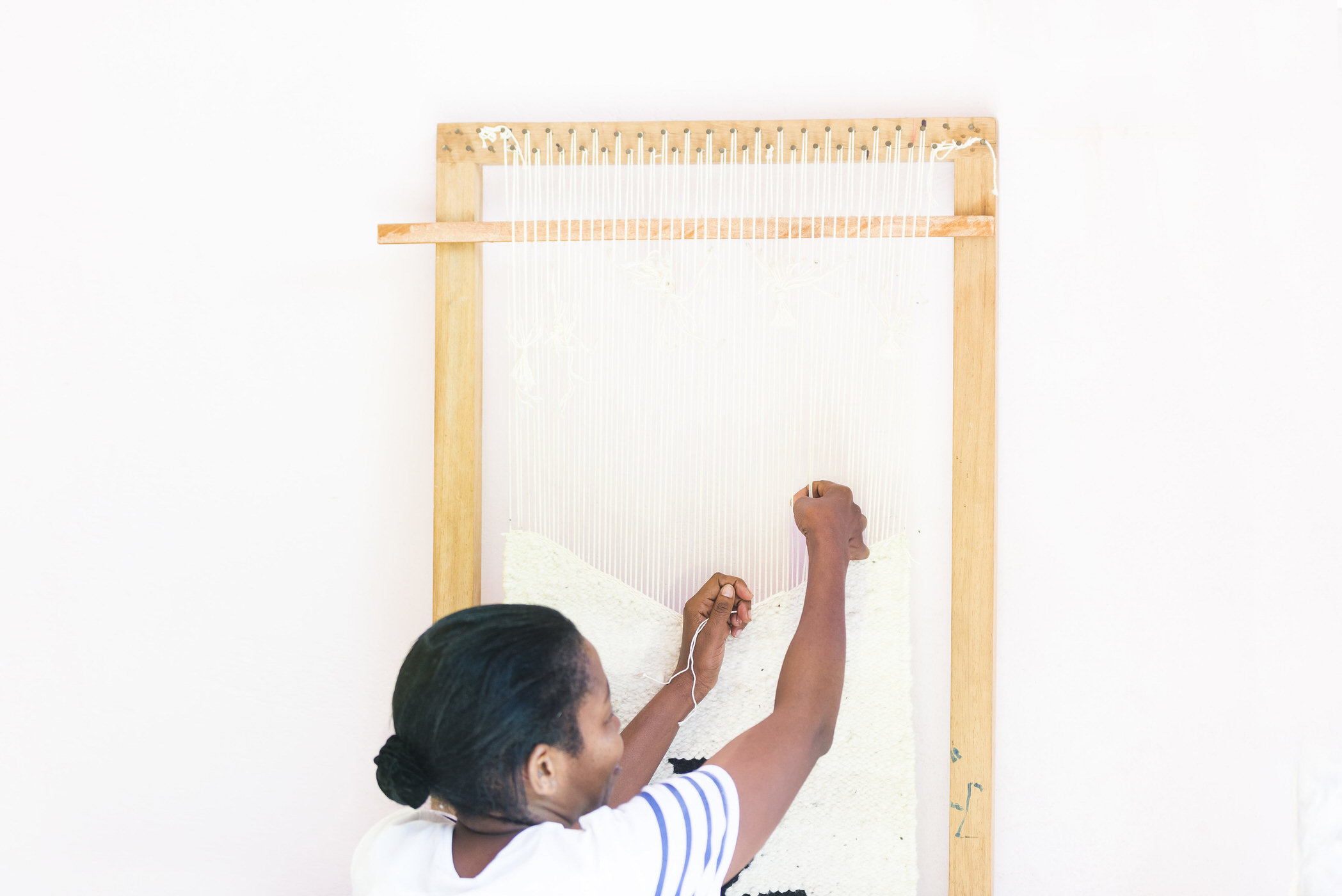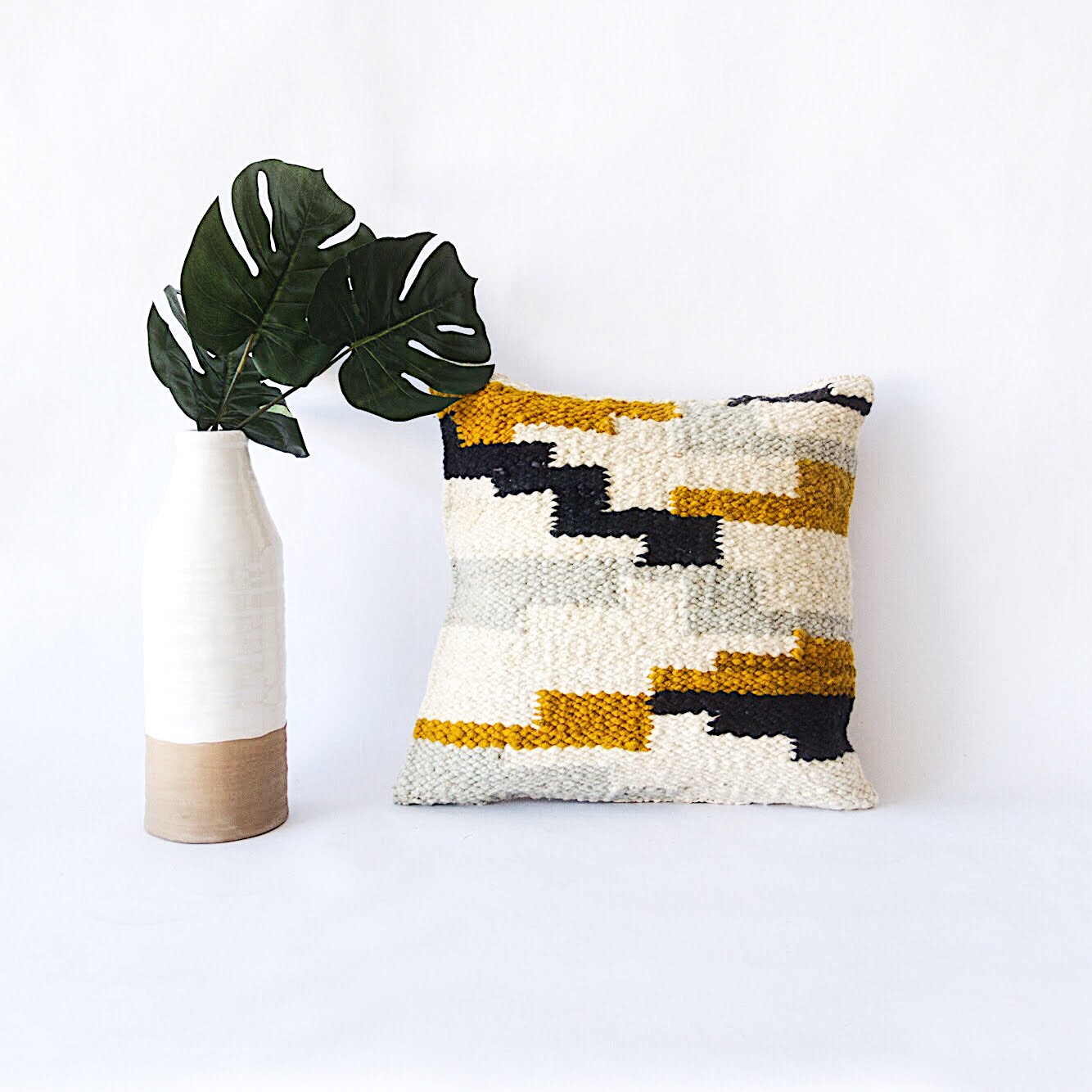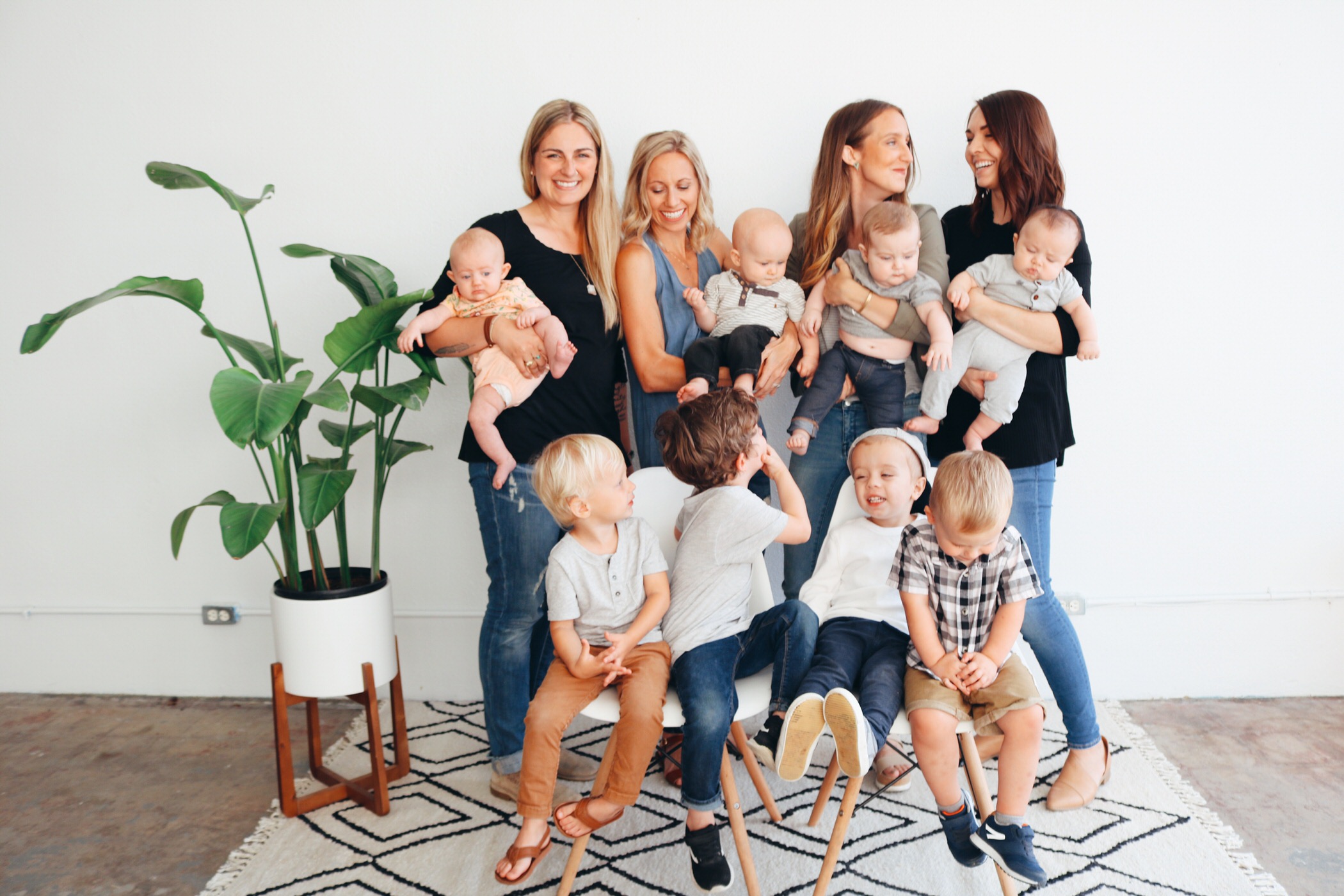I first visited Kenya in 2011 to work with children and education. Through my time, I realized the children that were at the biggest disadvantages had single mothers who had very little opportunity. I developed deep friendships with these moms, and took the time to listen to their fears, needs, and drive to provide for their children in a context where women are not invested in. I realized we had so much in common, yet the only difference is that I grew up with people who believed in me and gave me an opportunity to be more. As a college student, I didn’t have much to give financially, but I did know how to sew and how to impart these skills. So with sixteen women by my side, we started Imani, a collection of artisan made homewares for shared spaces.
I never fully committed to living in Kenya, and kept traveling back to the states trying to convince myself that I was not meant to be there. The truth is I always felt more alive in the context of Africa and longed for more. I remember when I decided to move to Kenya full-time. I sold everything and flew across the world to move into the village with these women. I craved to be close to them, to learn from them, and to be a part of the community.
If I was going to create something of impact, I wanted to be where the impact was happening every single day.
The more I network with other do good brands, I realize my story of moving out of the country full time is more rare than I would have thought. There are definitely benefits to both, but I have found that being so closely involved with the artisans I work with has allowed me to see impact and ultimate life changes right before my eyes.
.jpg)
Every day, I get to build authentic relationships, be transparent with my artisans and customers, and build lasting friendships.
It has been beautiful over the years to build a community that breaks all global boundaries and has created a culture that is contagious to be around. The hardest part about being in Kenya is that I do not get to have all those coffee dates I crave with each one of you, but I do have some practical advice to give when it comes to choosing “do good” brands that are trying to be more ethically conscious.
Note: There are so many amazing social enterprises and we don’t pretend to have it all figured out, but here are three things we set as a standard for ourselves and look for with “do good” brands.
.jpg)
They know the artisans/maker
Not everyone who starts a “do good” company wants to move to the location of production full time, but we believe maintaining those relationships are key for the business and for knowing the true impact in their lives and community. If the company is very large, they may not know every maker by name, but a key part of our culture, even as we expand, is staying connected to our artisans and knowing them on a deep level. We believe community among our team is integral for true empowerment and development.

They practice ethics + provide fair wages
It is so important to know that artisans are making a fair wage in their economy and culture. There are many models for this that are beneficial in their own ways, such as paying per piece created. We have found in our context that salaried employment plus benefits is the most beneficial model.
This has brought much stability to the artisans and their families, and promotes commitment on both ends.

Transparency
Any social enterprise or company claiming to do good should be open about their business practices, where the products are sourced, and where the artisans are located. This helps consumers know the actual impact of their purchase and allows them make more well informed purchases.
As “do good” grows and becomes the norm, make sure to look for the authenticity of the brand. Ask the hard questions, and set your standards for the ethical organizations you want to be involved with. My advice is to find the genuine storytellers, and if you have a chance, go meet those beautiful artisans, give them a hug, and empower them with a thank you. You will forever change their life. I promise you.
Also, know that you are welcome with us always, whether in Dallas or in our workshops in Kenya, to come by anytime and enjoy a cup of chai.

If you’re interested in getting involved with Imani Collective, find out more here:
Volunteering
Experiences
Partnerships
Giving
Photos courtesy of Imani Collective
.jpg?w=1200&fit=crop)